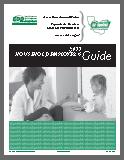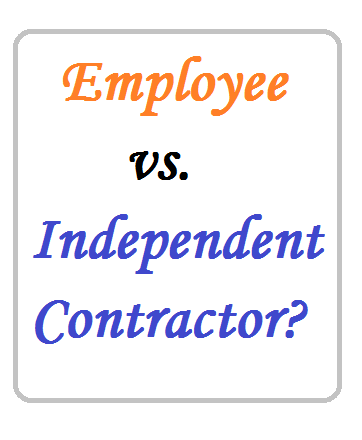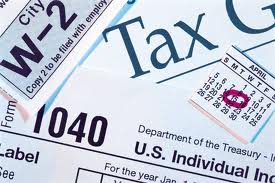Whether you hired a nanny, a housekeeper, a personal assistant, or a private educator this year, there are some important things to know when it comes to filing taxes. When you hire someone to work in your home, you become an employer. Tax and labor laws generally apply, even if there are some small exemptions unique to household employers. Many families don’t know this and make the mistake of paying the employee “off the books.” This could be a very costly error. Here are some specific ways to avoid domestic employee tax problems.
Read More
Topics:
housekeeper,
household employee taxes,
nanny payroll tax,
nanny hourly wage,
nanny independent contractor,
nanny tax compliance,
household payroll,
caregiver
The California Domestic Workers' Bill of Rights (CA DWBR), which went into effect in 2014, along two other pieces of recent legislation obligate California household employers to special responsibilities. Recently the January 1, 2017 sunset provision of the 2014 CA DWBR legislation was repealed - a significant victory for domestic worker rights advocates.
California household employers must first make a determination, based on the nature of the work performed, whether their employee is a domestic service worker or a personal attendant. Duties determine the applicablity of Wage Orders and employee protections in California. It's a bit complicated!
Read More
Topics:
domestic employer legal responsibilities,
nanny independent contractor,
nanny work agreement,
california household employment
A recent Forbes article sums this reoccurring argument up nicely – the government’s massive enforcement surrounding worker classification, or misclassification, is all about money, lots and lots of money.
Read More
Topics:
1099 v w-2,
nanny independent contractor,
senior caregiver independent contractor
HWS client care specialists field inquiries about worker classification - whether a household worker is an employee or an independent contractor - all the time. Families call questioning whether they can treat their household employee as an independent contractor, provide them a 1099 Form instead of a W-2, and avoid the entire issue of payroll taxes.
Read More
Topics:
worker misclassification independent contractor,
1099 v w-2,
nanny independent contractor,
household independent contractor
HomeWork Solutions is a leading national nanny/household employee payroll and tax company. We work with thousands of families, and hear and respond to the same questions/concerns over and over again. We want to take the opportunity to share this information with you through this easy to follow Q. and A.
Read More
Topics:
babysitter nanny tax,
worker misclassification independent contractor,
domestic employer legal responsibilities,
nanny non-exempt employee,
nanny independent contractor,
nanny tax compliance,
nanny job description
Nannies are employees of the families they work for. They are not independent contractors, whether the family or nanny wants to be or not.
Families sometimes try to completely side step their employment tax obligations by giving the nanny a 1099 form at year end. In so doing, they avoid paying their share of Social Security and Medicare taxes, as well as unemployment taxes, and they push their tax obligations on to the nanny. This path allows the family the benefit of child care tax credits without the corresponding expense of paying their portion of the employment taxes.
Read More
Topics:
nanny w-2 form,
domestic employer legal responsibilities,
nanny independent contractor,
household independent contractor
(
Republished from January 2010)
In an incredibly interesting and complicated court case involving:
Read More
Topics:
nanny employee,
nanny independent contractor
While most media attention in 2011 was focused on AB889 the California Domestic Workers' Bill of Rights, which did not pass in the 2011 legislative session, two other pieces of legislation that household employers must be aware of passed with little notice.
Read More
Topics:
domestic employer legal responsibilities,
nanny independent contractor,
nanny work agreement,
california household employment

We have helped families with their nanny payroll and tax issues for nearly 20 years. Some family and nanny questions are timeless. Here is a little of what we hear. Remember, there are very thorough answers to many common questions in our online FAQ.
1. I had a serious misunderstanding with my family and left my nanny job without notice. I received a text from my employer, a lawyer, asking for my mailing address so she could "1099" me. Isn't she supposed to give me a W-2? What does this mean?
Nannies are employees of the families that they work for and the wages nannies receive are subject to Federal and State employment taxes. These employment taxes are paid to the government by the employer, and the employer is entitled to deduct your portion from your paycheck. If the employer does not deduct, THEY remain responsible for paying. YOU are responsible for your income taxes.
Your employer is legally obligated to provide you a W-2 form no later than January 31, 2012 for your 2011 employment.
2. I agreed to work for a family for cash - under the table. We agreed on a rate knowing that no taxes would be deducted or reported. My boss has been collecting money from a special tax free account, and just learned she has to pay taxes and report my income. What does this mean to me?
When you agree to work under the table both you and your employer are agreeing to violate tax law, and there can be consequences to both of you if you are caught. Fortunately for you, it sounds like this can be rectified in a timely manner assuming you are referring to 2011 wages.
Your employer will need to give you a W-2 that documents the wages you were paid. She will file this with the Social Security Administration. She will have to pay the IRS the Social Security and Medicare taxes on your wage, and will likely need to pay unemployment taxes too. Your W-2 will show that NO income tax was deducted from your wage; this is legal in household employment. You will need to complete an annual income tax return to calculate the amount of tax due, if any, and make your payment to the IRS. Don't ignore the W-2 - the IRS will know you received one and will catch up with you sooner, rather than later. Enforcement is always stepped up when there are budget deficits and government programs awaiting funding.
3. I hired a foreign nanny who is here legally on a visa but she doesn't have a Social Security Card. What do we do about the taxes?
There are two possible scenarios at play here. The first is that your nanny is both legally present and legally authorized to work in the U.S. and is simply awaiting her SSN. If that is the case, the situation will resolve in about 6 - 8 weeks as that is the typical turn around time for a Social Security Number application. You need to report all income and pay all taxes from the date she starts, whether she has the number yet or not. Depending on your state taxing authority, you may incur a small penalty on your first filing if this number is not included.
The second possible scenario is that your nanny is legally present (has a visa) but does not have authorization to work in the U.S. By hiring her you both are in violation of U.S. law. You the employer are only permitted to hire citizens, permanent residents, or legal non-immigrants with a valid work visa. She too is violating her visa. This is a somewhat common occurrence with foreign students admitted to the U.S. to pursue university studies. You will have all of the employment tax obligations of an employer - the IRS does not care if your nanny is legal to work or not. Your nanny will file a W-7 application for a Individual Taxpayer ID Number (ITIN) with her first tax return (usually a 1040NR) and be issued an identifying number by the IRS. Therefore, for the first year all of your filings will be missing a SSN/ITIN, but in future year filings you will be able to utilize her ITIN for tax payment purposes.
Read More
Topics:
nanny income tax,
nanny payroll tax,
nanny taxes,
nanny independent contractor
The Obama Administration has identified worker mis-classification and the resultant payroll tax avoidance - specifically misclassifying employees as independent contractors - as an enforcement priority.
Read More
Topics:
worker misclassification independent contractor,
nanny employee,
nanny non-exempt employee,
nanny independent contractor







